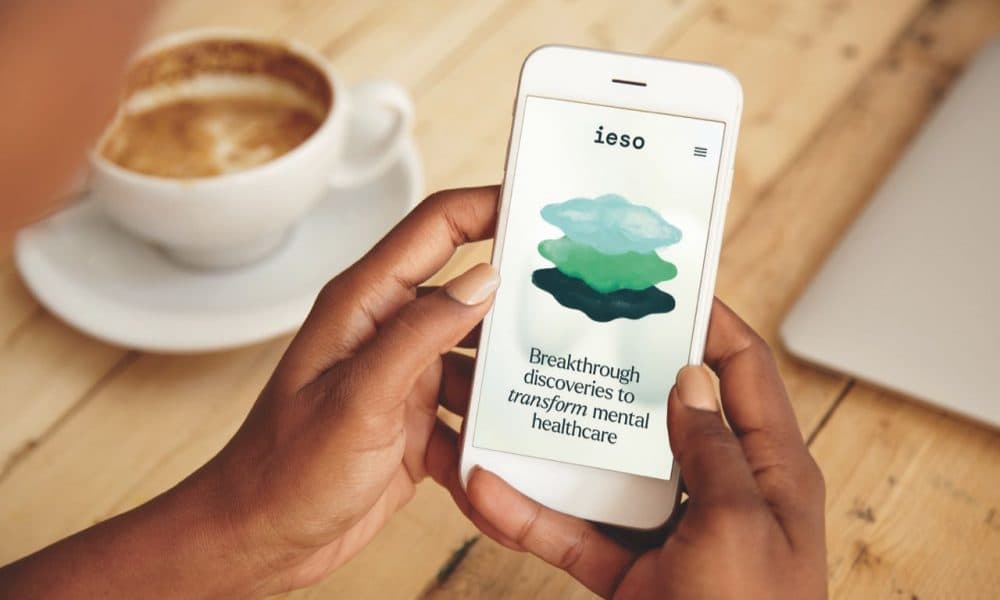
As one of the pioneers of digital health, ieso has been delivering Cognitive Behavioural Therapy (CBT) for almost a decade, partnering with the NHS to support people across the UK. Health Tech World speaks to Dr Andrew Welchman, executive vice president for impact, about how the business – which recently raised £39m to support its growth – is meeting soaring demand for mental health support across the UK and globally
Digital health and remote delivery of monitoring and care have become familiar concepts to us all during the COVID-19 pandemic – but for ieso, this approach has been the basis of its business for almost a decade.
Regarded as a pioneer of digital health, ieso’s support for people living with mental health issues including anxiety and depression through online Cognitive Behavioural Therapy (CBT) has helped to show what can be achieved through remote intervention.
Originally established in 2000, the business built a relationship with the NHS years before the pandemic necessitated the adoption of digital; indeed the NHS now funds its services in many parts of the country, ensuring they are readily available and free of charge to the growing numbers of people who need mental health support now more than ever before.
ieso works with over 700 therapists across the UK to deliver support, primarily through online messages (although video sessions are also available). ieso has seen demand soar during the past 18 months, and continues to use the latest AI technologies to drive scientific insights and develop new innovations to help meet the growing need.
“ieso’s origin came from recognising that many people in need of help weren’t able to access therapy at a time or a place that was convenient for them,” says Dr Andrew Welchman, formerly head of neuroscience and mental health at The Wellcome Trust, before joining ieso in September 2021.
“There is long-entrenched stigma around mental health, and our founders recognised that there was real value in providing a discreet service that didn’t involve a trek to a hospital but could be done in your own home at a time that worked for you.
“Most of our therapy is delivered in the evening, so people don’t need to take time off work. And texting through a device means that it’s very discreet, and many people report that they find it easier to write deeply personal things down than to say them out loud.”
ieso’s service is now available to around 20 million NHS patients, helping widen access to CBT. The real culture shift in mental health care has come since March 2020 – a situation ieso was already in place to help support from the outset.
“We’ve seen this massive shift in the delivery of care. Before the pandemic, there remained a debate about whether you can really deliver therapy remotely. Isn’t it about sitting in the same room with somebody? There was a lot of discussion about the essential bits of therapy that you needed to have, and surely you couldn’t really do this remotely,” says Dr Welchman.
“While ieso already knew that it was not only possibly the answer—but in some cases better—it took the pandemic to really quash the remaining doubts because everyone’s had to shift.
“Not only does it work, but one of the things that ieso has shown is that it works really well. By using systematic data analysis and a scientific approach, our outcome rates have climbed year-on-year so that for many people our service is more likely to be effective in helping them recover than standard therapy offerings.
Crucially, attitudes from the wider population are also changing.
“Over the past decade we’ve had a really important discussion about stigma. Having mental health problems has for too long been seen as something that you couldn’t talk about,” says Dr Welchman, formerly a psychology professor at the University of Cambridge.
“There has been some really important work that has helped shift that dialogue. We’re now seeing many more people coming forward, recognising that they need help, and taking the first steps to receiving it.
“It has been really encouraging to see the uplift in interest at the level of Governments and businesses that are recognising that this is such an important issue.”
With the pandemic clearly demonstrating the efficacy of digital health, for providers like ieso, the challenge is now to continue to innovate to meet the challenge globally.
“Now that we’ve got something that’s much more convenient, how do we make that much more widely available?” says Dr Welchman.
“The UK has arguably got the best psychological therapy services in the world, yet we’re still only able to meet 20% of condition prevalence. When we look across the globe, the availability of mental health support is much, much lower so the huge need caused by the growing mental health challenge is not being met.
“When you look at lower resource settings, like Nigeria, South Africa or India it becomes hugely difficult for individuals in need to get support. How can we make psychological therapies much more scalable?
“That’s our big challenge: using smart technology to make high-quality mental health care available and affordable around the world.”
A key component in ieso’s offering is its bespoke service delivery, which is unique to the circumstances of each individual, and the human contact it offers via its online chat. Maintaining the core values of trusted tailored therapy are fundamental in the expansion, says Dr Welchman.
“There will always be a need for human therapists. But we don’t have enough trained therapists (by a very long way), so how can we use technology to work out where automated tools can help, and ensure that each human therapist can get more reach to support recovery in more people’s lives. That’s what we’re trying to work out,” he says.
“As we embrace technology, we need to do that in a responsible way to ensure that we are putting the needs of individuals in need of support first. We want to promote recovery—not a dependency on digital tools.
“AI approaches offer lots of promise because we can tailor care to each individual: it’s not about giving everybody the same thing. We’re talking about real people, we’re talking about real people’s lives and the complexity of those lives.
“Psychological therapy is a really powerful tool that we can use and has a major role to play, but that alone isn’t going to solve all the issues, so we need to think about complete packages of care for individuals that are going to work for them and fit into their lives.
“We’ve built amazing tools that support quality control in therapy. We can make sure that the right elements of care are in place, we can automatically check that the care has been delivered. And we can provide feedback to therapists to help them improve the support they provide. We are now putting these to use for more scalable interventions.
“Our approach is based on using all of the previous care journeys that people have gone through to help the next person in front of us receive the best care they possibly can.”
With its sector-leading innovation set to take ieso globally, its commitment to the people who need its services remains at the core of the business.
“Patients are at the very centre of what we do and how we work,” says Dr Welchman.
“Our starting point is to ask ourselves the question ‘if this was my partner, or if this was my child, is this the therapy I would like for them?’ And that’s the standard to which we hold ourselves.”





